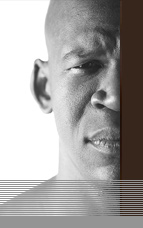Treatment
Treatment for sleep disorders depends on the cause.
Insomnia
If sleep studies do not indicate a pathological (related to disease) cause, improving "sleep hygiene" is the best way to treat insomnia . This means consuming less caffeine, avoiding exercise late in the evening, and engaging in a regular relaxation routine before bedtime. For some people, watching TV at night is actually too stimulating and may keep them from falling asleep.
In most cases, sedatives should only be used on a short-term basis; however, some people require long-term drug therapy. Antidepressants (e.g., trazadone [Desyrel) may be effective in these patients.
Sleep Apnea
For patients who are overweight, a weight loss program can be helpful in treating obstructive sleep apnea . Avoiding sleeping on the back also can help relieve the conditon.
Devices also are available that a person can wear during sleep. A CPAP (continuous positive airway pressure) machine can be used to apply pressure to the upper airway, preventing obstruction and keeping the airway open. Patients wear a small mask connected to the machine that provides pressure while they are sleeping.
Patients with treatable conditions, such as enlarged tonsils or a large deviated septum, may benefit from surgery. Patients with sleep apnea should never take sleeping pills because they can prevent the person from waking up enough to start breathing again.
Restless Leg Syndrome and Periodic Limb Movement Disorder
These disorders may be treated using medication.
Narcolepsy
There is no cure for narcolepsy , but symptoms can be managed with medication. Stimulants can keep a person awake during the day, and antidepressants can help the patient sleep better at night. Stimulants include methylphenidate (Ritalin), dextroamphetamine (Dexadrine), and Provigil. These drugs are addictive and can have serious side effects. It is important for people with narcolepsy to get a good night's sleep.
Sleep Hygiene - How to Get a Good Night's Sleep
The National Institute of Neurological Disorders and Stroke recommends the following tips for getting a good night's sleep and managing various sleep disorders.
| 

